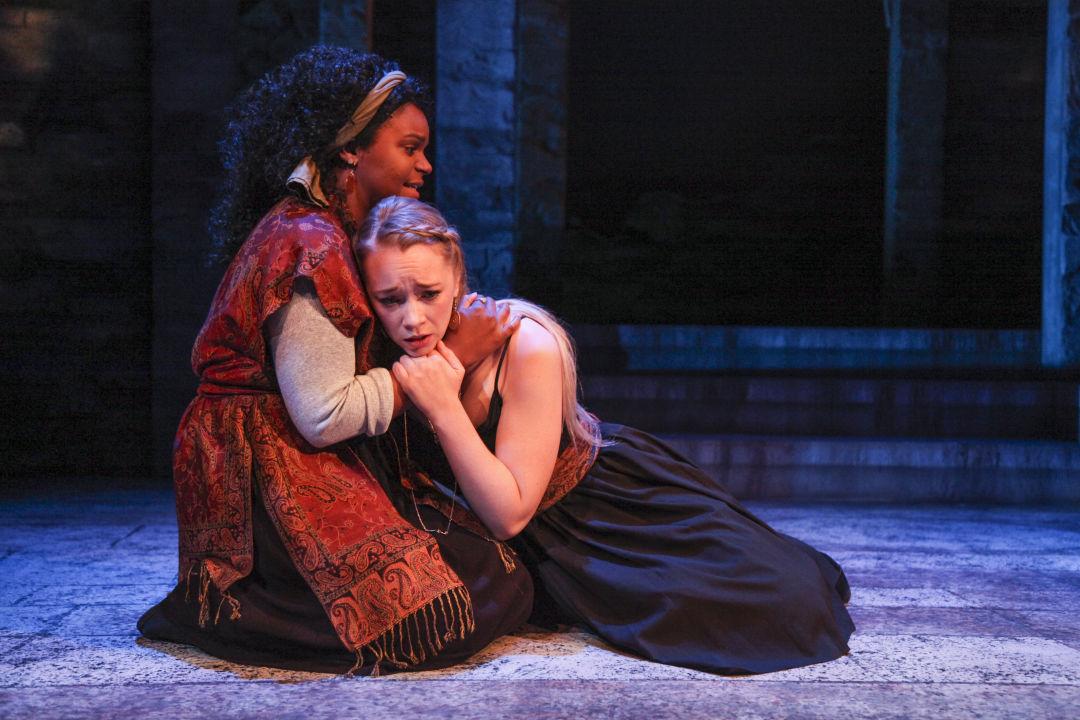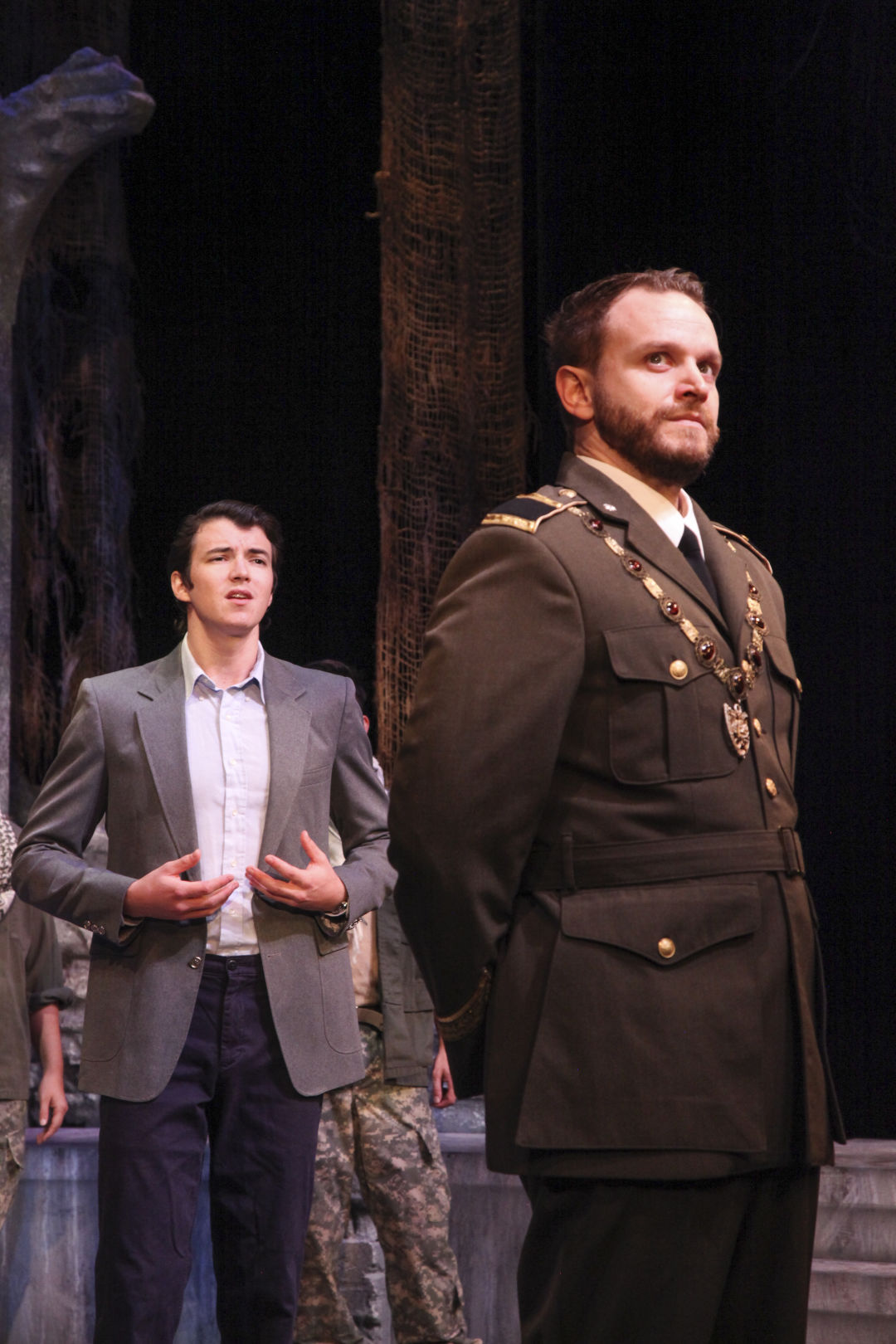FSU/Asolo Conservatory Finds Relevance in Greek Classic Antigone

Naire Poole and Anna Beth Baker in Antigone.
Image: Frank Atura
What makes a theater classic a classic? Simply enough, that the questions and issues it raises continue to remain relevant over the centuries, through differing interpretations, political administrations and world events. And, in the case of a play like Sophocles’ Antigone, through differing translations. The one currently on view in the FSU/Asolo Conservatory production of this play set in ancient Thebes is by the late Irish poet and playwright Seamus Heaney, and it mixes what one might consider contemporary, direct language with the statelier proclamations of the original.
If you’re not that up on your Greek mythology, here’s the setup: Antigone (Naire Poole), the daughter of that late unfortunate Oedipus Rex character, is in conflict with the king who replaced her father, Creon (Christopher Hayhurst). That’s because Creon refuses to let one of her also deceased brothers, Polynices, be buried according to traditional Greek custom, considering him a traitor in a recent civil war—and decreeing that anyone trying to bury him will also be condemned.
That’s a big deal in the Greek culture, considering its belief in sacred rites, the gods and the afterlife. So Antigone defies Creon, against the pleas of her sister Ismene (Anna Beth Baker) and despite the awkwardness that causes in her engagement to Haemon (Liam O’Brien), Creon’s son, who must go to bat for her against his father. Got that all straight?

Jamie Saunders, Alex Rodriguez, Kaitlyn Weickel and Kenny Fedorko as members of the chorus.
Image: Frank Atura
The larger issue, though, and one that makes Antigone (subtitled The Burial at Thebes) forever timely, is the argument over which comes first—personal or patriotic loyalty. Do we as citizens in a democracy follow the policies of our government blindly? Or do we look to our own beliefs and consciences to make decisions? Creon (in a compelling performance by Christopher Hayhurst, decked out in a bemedaled military uniform) expects absolute loyalty, but in the end must face the drastic results of his demands and his own realizations of his mistakes. Antigone is no one-dimensional superheroine, either; she faces her death (via being walled up in a cave) with fear and tears as well as determination.

Liam O'Brien and Christopher Hayhurst as Haemon and Creon.
Image: Frank Atura
Meanwhile, the play’s chorus (us, if you like), clad in camo pants and boots and wielding sticks they use to rhythmically pound the floor or demonstrate a little combat, comments on the shifting perspectives of the situation and, eventually, weighs in, especially after the blind prophet Tiresias (Bonita Jackson) has his ominous say on the matter.
Clocking in at a tight 70 minutes (with no intermission), this Antigone, under the direction of Greg Leaming, makes its points clearly, often thanks to Heaney’s sharp use of hard-hitting words. It also gives the entire second-year acting class of the Conservatory a chance to meld the archetypes of Greek tragedy with some other eternal human figures we recognize all too well (like Jacob Sefcak’s sentry, adding comic relief as a reluctant messenger who doesn’t want to get blamed for sharing bad news). The cast overall demonstrates some promising talent, and Sophocles’ intent is as pertinent as it was more than 2,000 years ago.
Antigone continues through Nov. 17 in the Cook Theatre; call 351-8000 or go to asolorep.org for tickets.



